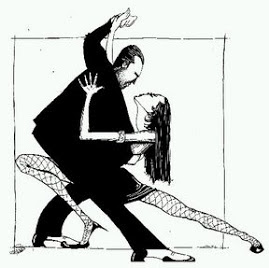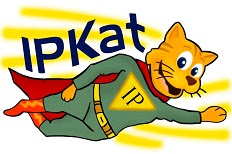
Media law in Venezuela: If you cannot show (or say) something nice, do NOT broadcast!
 Thanks go to my Venezuelan friends for sending me this news regarding the situation of Globovision, a TV channel from Venezuela.
Thanks go to my Venezuelan friends for sending me this news regarding the situation of Globovision, a TV channel from Venezuela.Broadcasting, Media Law and Venezuela
While broadcasting organizations are protected all over the world, countries have different legal traditions on how to provide protection. Indeed, everyone has the right to freedom of expression but this does not prevent a State from requiring to have a license for broadcasting and so, it establishes certain regulations and code of conducts. This area is controversial however; especially if you are in a country where Human Rights appear not to have much of a value – just law but not in fact [I am not finger pointing any country in particular].
In 2004 Venezuela adopted the Law on Social Responsibility on Radio and Television (Ley de Responsabilidad Social en Radio y Televisión, known as Ley Resorte). Its purpose was to establish a legal framework for the social responsibility of radio and television broadcasters. Its aim is to strike a democratic balance between duties and rights and promoting social justice – taking into consideration values. At the time, the law received opposition and criticism for those that go up against President Chavez believing that the Law was once more another way for the Government to have control over the media.
 In 2009, there was a post in this blog regarding the latest tendency of several Latin American countries concerning media and giving examples including Venezuela (at that time President Chavez had closed several radio stations; one TV station; and blocking in a ‘Book Fair’ the showing of a book for containing political views contrary to the President’s belief– all of these applying the Ley Resorte).
In 2009, there was a post in this blog regarding the latest tendency of several Latin American countries concerning media and giving examples including Venezuela (at that time President Chavez had closed several radio stations; one TV station; and blocking in a ‘Book Fair’ the showing of a book for containing political views contrary to the President’s belief– all of these applying the Ley Resorte).Are the rights of authors and owners stoppable?
There is no doubt that not only the law and code of practice must be applied to the contents of television and radio services so as to provide adequate protection for members of the public from the inclusion in such services of harmful and/or offensive material. Moreover, it is also desirable that factual matters must not materially mislead the audience. However in the other side of the coin we need also to consider that there are situations in which material which are violent needs to be shown – it is justified.
Having more or less this background I proceed to the news.
Last week, the National Telecommunications Commission (Conatel) of Venezuela fined the equivalent of about US$ 2.1 million to Globovision (a private television channel) by the treatment given to a prison crisis in June - a riot in which 20 people were killed. Tensions rose during Globovision coverage of the dispute in the jail, which showed security forces against armed prisoners – the riot lasted 27 days.
 The CONATEL Official claimed that Globovision incurred in a "defence to crime" by encouraging ”public nuisance" and giving “anxiety to citizens" and promoting "hatred and intolerance for political reasons". In other words it appears that Globovision was condoning and glamorizing violent and seriously antisocial behaviour – likely to encourage others to copy such behaviour (they based its arguments in Articles 7, 27, and 29). The broadcasting also transmitted interviews with prisoners’ family members during the riot. Because of these fact Conatel argued that when the channel reported that the National Guard was "massacring" inmates it was promoting hatred and by airing the prisoners' mothers statements they created 'unrest'.
The CONATEL Official claimed that Globovision incurred in a "defence to crime" by encouraging ”public nuisance" and giving “anxiety to citizens" and promoting "hatred and intolerance for political reasons". In other words it appears that Globovision was condoning and glamorizing violent and seriously antisocial behaviour – likely to encourage others to copy such behaviour (they based its arguments in Articles 7, 27, and 29). The broadcasting also transmitted interviews with prisoners’ family members during the riot. Because of these fact Conatel argued that when the channel reported that the National Guard was "massacring" inmates it was promoting hatred and by airing the prisoners' mothers statements they created 'unrest'. According to CONATEL the images and interviews were showed around 300 times [I guess that I do not have to be a mathematician to see that is the riot lasted 27 days, the images were produced at least 10 times per day which seems feasible bearing in mind that Globovision is a ‘News Channel’].
The vice president of Globovision, Maria Fernanda Flores, said that Marcos Hernandez, board member and president of Conatel called to ask for more balance in coverage of the riot. Flores requested access to the information and also to be allowed to go inside the prison – this was permitted to the Government TV station only [this is balance in a democratic society like Venezuela].
The International Association of Broadcasting has said that this fine and action against Globovision represents "a step toward total government hegemony".
The Human Rights Watch asked the Government to stop the harassment of the TV station and finalised its report by making the following declarative: "The decision to open an investigation and the application of sanctions for infractions of broadcasting laws are the responsibility of CONATEL, a body attached to the Ministry of Communication and Information. While defined in law as an autonomous body, CONATEL’s four-person board of directors and its director general are all appointed by the president of Venezuela and can be dismissed at his discretion."
The New Herald mentions that Globovision last year became the only opposition channel to President Chavez after another television station, RCTV, was forced to withdraw both cable TV and satellite. Other private TV channels have reduced their criticism of the President in recent years. Therefore I leave you with this last statement so you can draw your own conclusions – is Venezuela IP friendly?

































